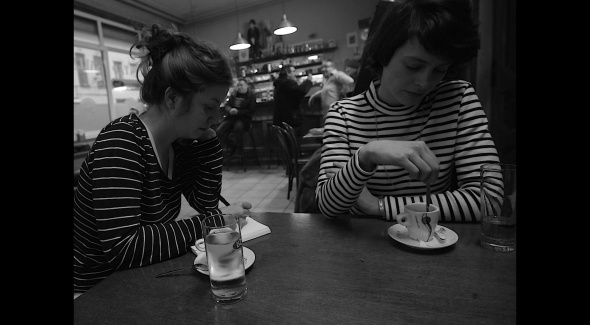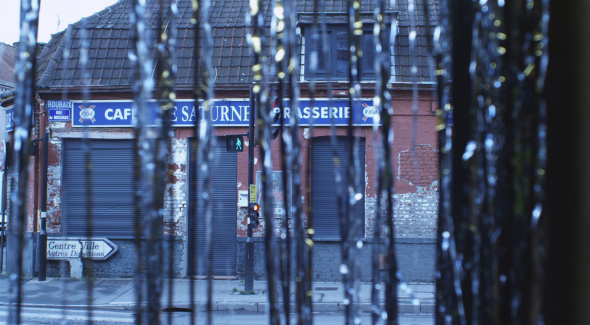Béla Tarr
The nine films made by the Hungarian Béla Tarr between 1979 and 2011 amount to one of the most powerful and influential bodies of work in contemporary cinema. Jacques Rancière, who has written a book about the filmmaker, sees him as a major artist of the “after-time” that followed the failure of the communist promise, whose long sequence shots manage to smash the cycles of repetition by the quality of their attention to the still intact belief in a better life. There will be no tenth film. Tarr decided to retire after making The Turin Horse (2011). The illustrations on this page come from
videos made by students during this year’s workshops.
A theme: coffee with(out) cigarettes. A place: the Interville café in Roubaix. Such were the initial elements conceived by Béla Tarr for the workshop run with the ten or so students he is mentoring at Le Fresnoy this year. Moments of concentration and mental freewheeling, kicking off from the real and the imaginary, putting personal and collective storiesinto a joint film. While the ensemble is itself an exercise, the photographs taken during the workshop show this to have been an exceptional moment in the life of Le Fresnoy. This confirms, too, that nothing here is arbitrary or left to chance. The cosmic, that essential connection to the world, joins the anecdotal. Placed under the unstated sign of a song by the Platters, Smoke Gets in Your Eyes, connecting the different parts of the film, the heart, as evoked in the ritornello, is consumed in the present of cinema and of life itself.
To this precipitate we can apply the words of Jacques Rancière about the images at work in the films of Béla Tarr: “(…) More than any others, his images deserve to be call time-images, images in which is made manifest the duration that is the very matter from which are woven those individualities that we call situations or characters. (…) Each moment is a microcosm. Each sequence-shot must be in the time of the world, in the time where the world is reflected in intensities felt by bodies.*”
François Bonenfant.
* in Béla Tarr, Le temps d’après, Jacques Rancière, Paris, Capricci, 2011, p.41.






